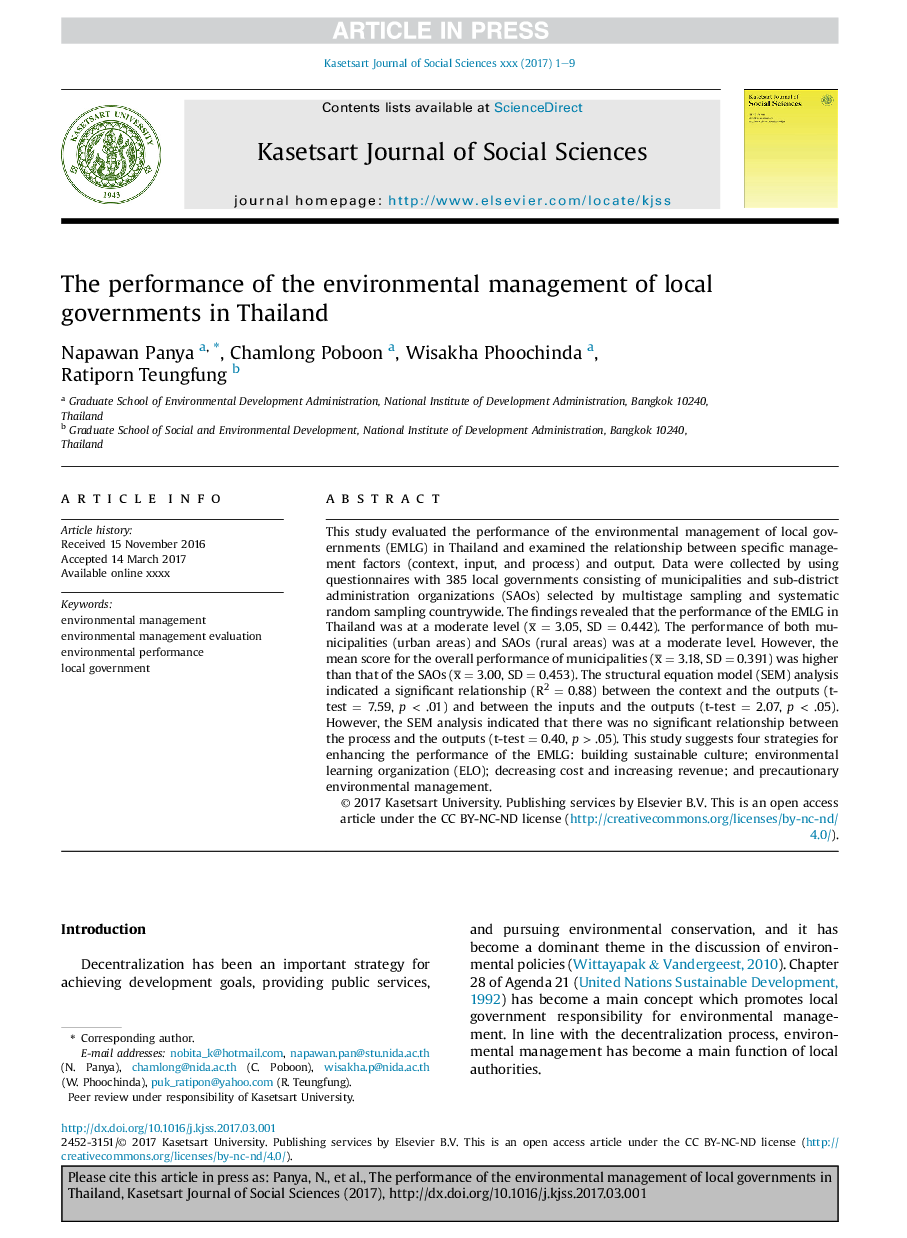ترجمه فارسی عنوان مقاله
عملکرد مدیریت زیست محیطی دولت های محلی در تایلند
عنوان انگلیسی
The performance of the environmental management of local governments in Thailand
| کد مقاله | سال انتشار | تعداد صفحات مقاله انگلیسی |
|---|---|---|
| 92528 | 2018 | 9 صفحه PDF |
منبع

Publisher : Elsevier - Science Direct (الزویر - ساینس دایرکت)
Journal : Kasetsart Journal of Social Sciences, Volume 39, Issue 1, JanuaryâApril 2018, Pages 33-41
ترجمه کلمات کلیدی
مدیریت زیست محیطی، ارزیابی مدیریت محیط زیست، عملکرد زیست محیطی، دولت محلی،
کلمات کلیدی انگلیسی
environmental management; environmental management evaluation; environmental performance; local government;

